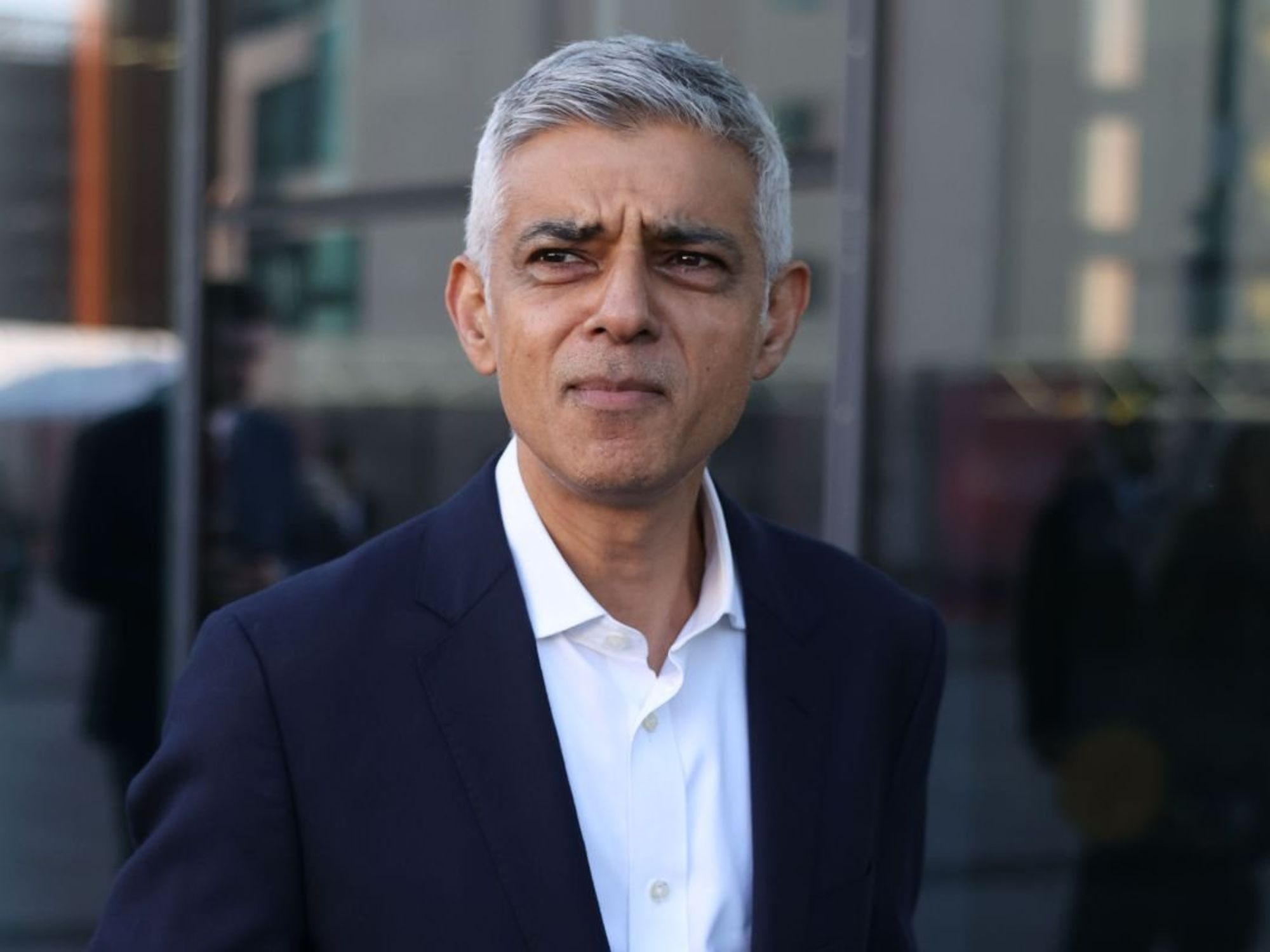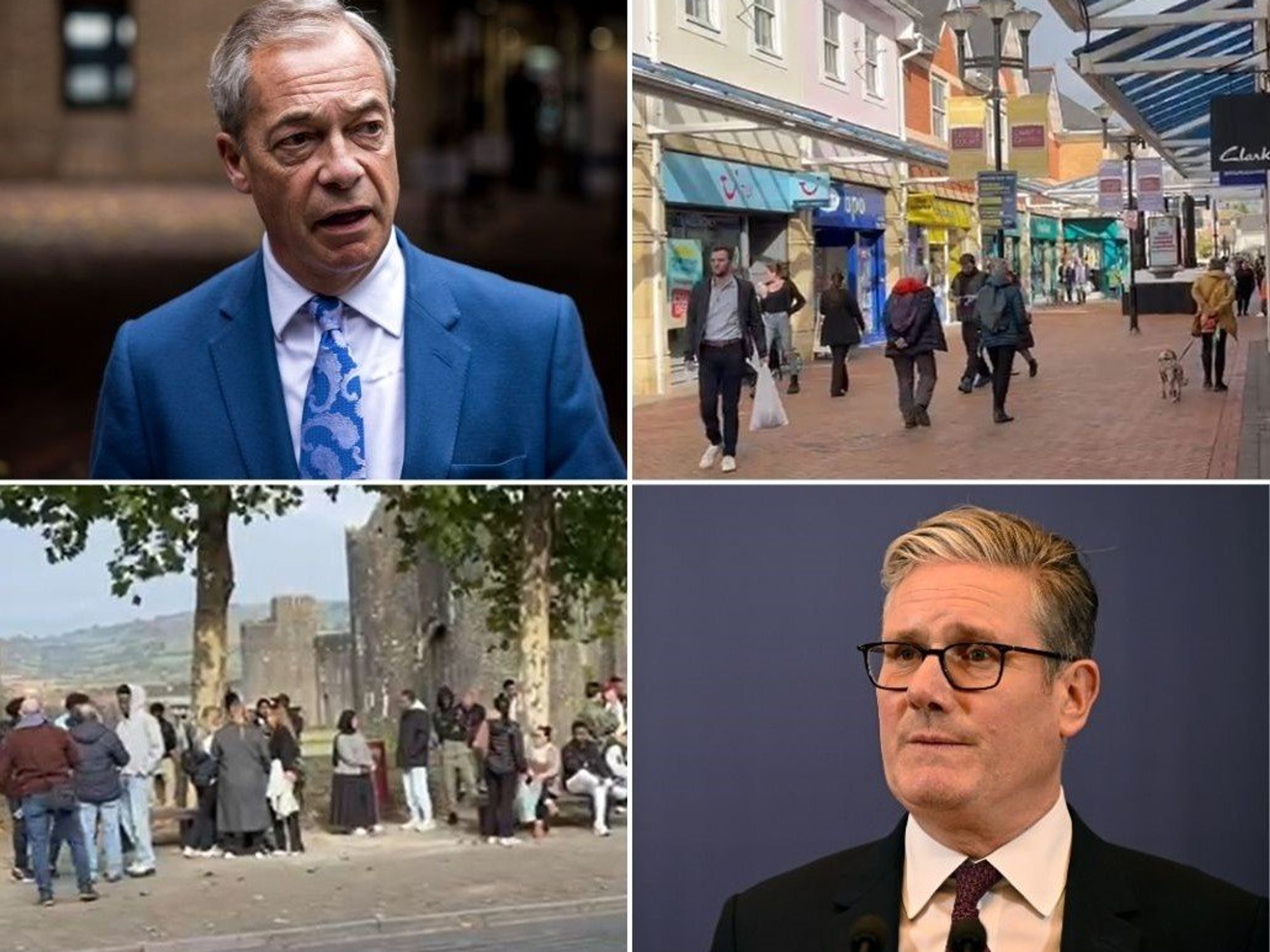Covid infections soar to record high as Omicron sweeps through UK
It's estimated 1.4m people had the virus in the week ending December 16
Don't Miss
Most Read
Latest
Covid infection levels have reached a record high in the UK, new data shows, as the Health Secretary maintained no further restrictions will be set out before Christmas.
An estimated 1.4 million people in the UK had the virus in the week ending December 16, the highest number since comparable figures began in autumn 2020, the Office for National Statistics (ONS) said.
The data emerged within hours of Sajid Javid telling broadcasters the Government is not planning to make any more announcements on restrictions in England this week.
Health secretary, Sajid Javid visits St George's Hospital in south west London.
Stefan Rousseau
It follows a warning from NHS national medical director Professor Stephen Powis that the service is on a “war footing” as the Omicron variant sweeps through the country.
In other developments:
Mr Javid welcomed studies suggesting Omicron may cause less severe illness than earlier strains but he warned it could still lead to “significant” hospital admissions.
The ONS said the percentage of people testing positive for Covid in the latest week is estimated to have increased in all regions of England except the north-east, south-west and West Midlands, where the trend is uncertain.
New figures from NHS England showed one in five patients waited at least half-an-hour to be handed over from ambulance teams to A&E staff at hospitals in England last week.
In England, around one in 45 people in private households had Covid in the week to December 16, up from one in 60 the previous week, according to the latest ONS estimates.
Medical staff walk past a Christmas tree on a ward for Covid patients at King's College Hospital, in south east London.
Victoria Jones
Equivalent to about 1.2 million people, this is the highest number since the ONS began estimating infection levels for England in May 2020.
Meanwhile, the Government is under pressure to clarify its tipping point for imposing further measures as new figures show the number of NHS staff absent for Covid reasons at acute trusts in London more than doubled last week.
Across England as a whole, 18,829 NHS staff at acute hospital trusts were absent due to reasons relating to coronavirus on December 19, up 54% from 12,240 a week earlier and up 51% from 12,508 at the start of the month, according to the data from NHS England.
In London, 3,874 NHS staff at acute trusts were absent for Covid reasons on December 19, more than double the number a week earlier (1,540) and more than three times the number at the start of the month (1,174).
The total included staff who were ill with Covid or who were having to self-isolate.
Chris Hopson, chief executive of NHS Providers, said the service is preparing to expand capacity in case a “surge” of healthcare is needed, but it will be able to manage increased hospital cases.
The news comes as Boris Johnson has been facing calls to outline his post-Christmas Covid strategy for England, with leaders in Northern Ireland, Wales and Scotland having all announced new restrictions to tackle Omicron.
Labour has called for “more clarity” from the Government on its plans, with Lucy Powell, the shadow secretary of state for digital, culture, media and sport, claiming the Prime Minister is unable to make calls on Covid data because he has “lost authority with the public”.
Mr Javid acknowledged that staff absences due to Covid are adding to pressures on the NHS but said the easing of self-isolation rules will help.
Professor Neil Ferguson, of Imperial College London, speaking by video link to the House of Lords Science and Technology Committee.
Parliament TV
Earlier on Thursday, Welsh economy minister Vaughan Gething said he did not think England’s position on Covid restrictions would remain the same “for very much longer”.
He also said England is “out of step” with the other three UK nations on its Covid response.
In Wales, around one in 55 people is estimated to have had Covid in the week to December 16, unchanged from the previous week and below the recent record high of one in 40.
In Northern Ireland, the latest estimate is one in 50 people, also unchanged from the previous week and slightly below the record high of one in 40 in mid-August.
For Scotland, the latest estimate is one in 70, up from one in 80 the previous week but below September’s peak of one in 45.
All the figures for the devolved nations relate to people in private households.
It emerged on Thursday that people infected with Omicron may be less likely to end up in hospital, amid rising case rates and new restrictions across the UK nations.
Two new studies suggested Omicron is less likely to result in severe symptoms and hospital admission than earlier Covid strains like Delta.
However, Professor Neil Ferguson, from the Imperial College London team behind one of the studies, warned Omicron’s severity may be offset by the “reduced efficacy” of vaccines to stop it being transmitted.
Ministers have stressed the Government is constantly considering new Covid data, with health minister Gillian Keegan saying on Wednesday: “There is uncertainty. We can’t predict what the data is going to tell us before we’ve got the data.”
But Mr Javid said on Thursday that no further restrictions for England will be set out before Christmas.
“We are not planning any further announcements this week,” he told broadcasters.
“Despite the caution that we are all taking, people should enjoy their Christmases with their families and their friends – of course, remain cautious.
“We will keep the situation under review. We are learning more all the time, as we have done from this new data.
“We will keep analysing that data and if we need to do anything more we will, but nothing more is going to happen before Christmas.”














